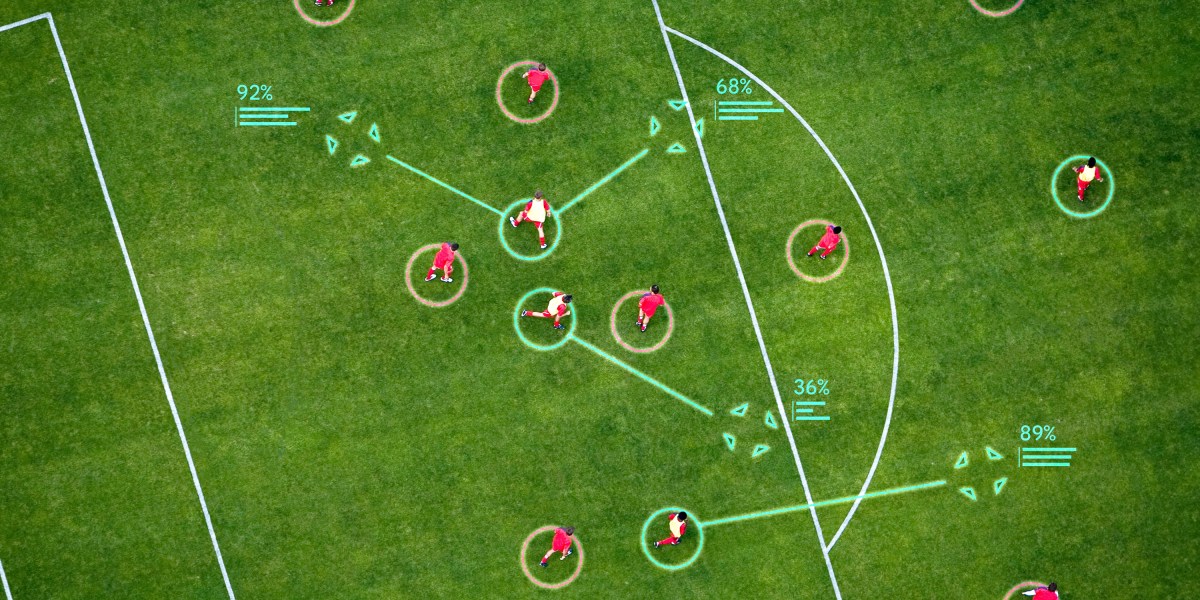Notifications
ALL BUSINESS
COMIDA
DIRECTORIES
ENTERTAINMENT
FINER THINGS
HEALTH
MARKETPLACE
MEMBER's ONLY
MONEY MATTER$
MOTIVATIONAL
NEWS & WEATHER
TECHNOLOGIA
TV NETWORKS
VIDEOS
VOTE USA 2026/2028
INVESTOR RELATIONS
COMING 2026 / 2027
ALL BUSINESS
COMIDA
DIRECTORIES
ENTERTAINMENT
FINER THINGS
HEALTH
MARKETPLACE
MEMBER's ONLY
MONEY MATTER$
MOTIVATIONAL
NEWS & WEATHER
TECHNOLOGIA
TV NETWORKS
VIDEOS
VOTE USA 2026/2028
INVESTOR RELATIONS
COMING 2026 / 2027
About Me
 Latinos Media
Latinos Media Latinos Media provides all types of news feeds on a daily basis to our Members
Posted by - Latinos Media -
on - March 20, 2024 -
Filed in - Technology -
-
483 Views - 0 Comments - 0 Likes - 0 Reviews

Soccer teams are always looking to get an edge over their rivals. Whether it’s studying players’ susceptibility to injury, or opponents’ tactics—top clubs look at reams of data to give them the best shot of winning.
They might want to add a new AI assistant developed by Google DeepMind to their arsenal. It can suggest tactics for soccer set-pieces that are even better than those created by professional club coaches.
The system, called TacticAI, works by analyzing a dataset of 7,176 corner kicks taken by players for Liverpool FC, one of the biggest soccer clubs in the world.
Corner kicks are awarded to an attacking team when the ball passes over the goal line after touching a player on the defending team. In a sport as free-flowing and unpredictable as soccer, corners—like free kicks and penalties—are rare instances in the game when teams can try out pre-planned plays.
TacticAI uses predictive and generative AI models to convert each corner kick scenario—such as a receiver successfully scoring a goal, or a rival defender intercepting the ball and returning it to their team—into a graph, and the data from each player into a node on the graph, before modeling the interactions between each node. The work was published in Nature Communications today.
Using this data, the model provides recommendations about where to position players during a corner to give them, for example, the best shot at scoring a goal, or the best combination of players to get up front. It can also try to predict the outcomes of a corner, including whether a shot will take place, or which player is most likely to touch the ball first.
The main benefit is that the AI assistant reduces the workload of the coaches, says Ondřej Hubáček, an analyst at the sports data firm Ematiq who specializes in predictive models, and who did not work on the project. “An AI system can go through the data quickly and point out errors a team is making—I think that’s the added value you can get from AI assistants,” he says.
To assess TacticAI’s suggestions, GoogleDeepMind presented them to five football experts: three data scientists, one video analyst, and one coaching assistant, all of whom work at Liverpool FC. Not only did these experts struggle to distinguish’s TacticAI’s suggestions from real game play scenarios, they also favored the system’s strategies over existing tactics 90% of the time.
These findings suggest that TacticAI’s strategies could be useful for human coaches in real-life games, says Petar Veličković, a staff research scientist at GoogleDeepMind who worked on the project. “Top clubs are always searching for an edge, and I think our results indicate that techniques like these are likely going to become a part of modern football going forward,” he says.
TacticAI’s powers of prediction aren’t just limited to corner kicks either—the same method could be easily applied to other set pieces, general play throughout a match, or even other sports entirely, such as American football, hockey, or basketball, says Veličković.
“As long as there’s a team-based sport where you believe that modeling relationships between players will be useful and you have a source of data, it’s applicable,” he says.